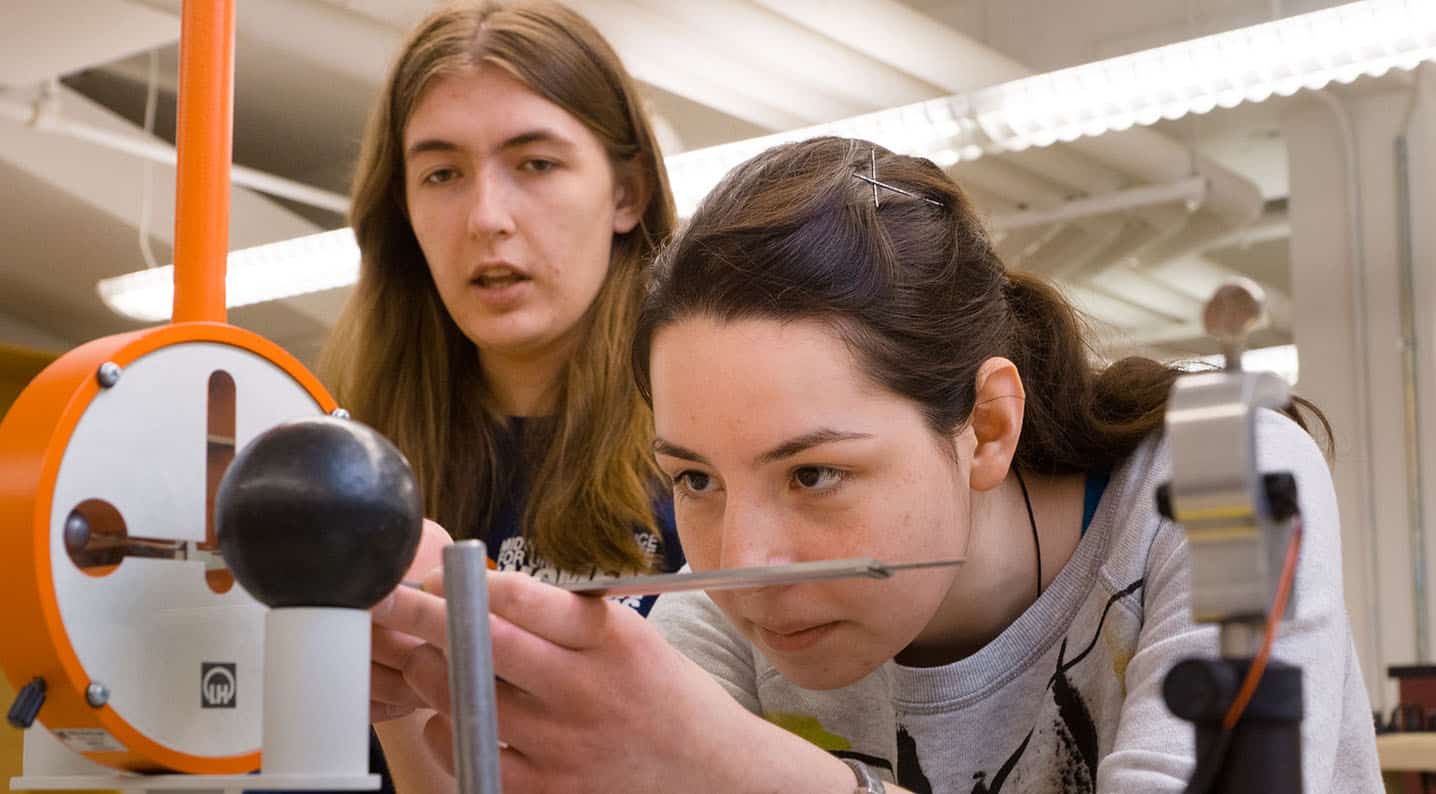Physics/Engineering Dual Degree

Truman offers a Dual Degree Program that allows you to earn a Bachelor of Arts in physics from Truman and a Bachelor of Science in an engineering field from an engineering school (e.g., Missouri University of Science and Technology (Rolla), University of Missouri, Iowa State, etc.). For example, Truman has an arrangement with Washington University in St Louis.
Typically, the program takes five years to complete—three years at Truman and two at the engineering school.
Build a Strong Foundation at Truman
- You create a personalized learning plan to match your future plans.
- You can develop valuable critical thinking and communications skills.
- An advanced background in physics augments your engineering studies.
- The interconnectedness of the two degrees makes them appealing to employers.
How It Works
Truman’s Bachelor of Arts in Physics is a rigorous program providing a strong liberal arts core, a solid foundation in physics, and a personalized 15-hour learning plan consisting of individually tailored courses that prepare you for your next step.
The physics portion of the BA includes nine hours of physics electives. Students in the dual degree program transfer their Truman coursework to the engineering school, and they transfer back to Truman some of their engineering courses to fulfill any or all of the required physics electives and the learning plan in the physics BA degree.
At the end of the program, students earn degrees from both institutions.
Although Truman has a residency requirement stating that students must complete their last 28 credit hours at Truman, this requirement is waived for dual-degree students.
Flexible Program
You're never locked in. If you change your mind in the first year, it is easy to switch to another major (even non-science) at Truman. If you lose interest in engineering, even as late as your third year, you can decide to stay at Truman and graduate in four years with a physics degree. Likewise, if you start at Truman as a physics major, you can change into the dual degree program at any point along the way.
Featured Courses
How to Apply
You will apply to Truman just like any prospective student would. If you’re interested in the Physics/Engineering Dual Degree program, you should review your plans with any Truman Physics faculty member. Eventually, you will also need to fill out two special forms:
Explore Related Programs
Majors
Minors